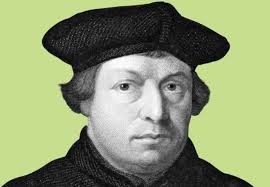In the tumultuous year of 1521, Martin Luther found himself at the epicenter of a theological and political storm that would reshape the course of European history. Luther, a German monk and theologian, had sparked the flames of the Reformation with his Ninety-Five Theses in 1517, challenging the authority of the Roman Catholic Church and igniting a movement that questioned centuries-old traditions.
The year 1521 witnessed a pivotal moment in Luther’s life, marked by a series of events that would have profound consequences. In January of that year, Pope Leo X issued the papal bull Exsurge Domine, condemning Luther’s teachings and threatening him with excommunication if he did not recant. Undeterred, Luther responded defiantly, burning the papal bull publicly and solidifying his break with the Catholic Church.
The turning point came in April 1521 when Luther was summoned to appear before the Imperial Diet of Worms, a council convened by Holy Roman Emperor Charles V. Despite the mounting pressure and the risk of being labeled a heretic, Luther refused to recant his views unless convinced by Scripture or clear reasoning. In his famous words, “Here I stand, I can do no other; may God help me.”
The Diet of Worms concluded with the Edict of Worms, issued by Charles V, declaring Luther an outlaw and banning his writings. This edict made Luther an enemy of both the church and the state, exposing him to persecution and potentially death. Seeking refuge, Luther was “kidnapped” by supporters and hidden in Wartburg Castle, where he spent the following months translating the New Testament into German, a task that would contribute significantly to the spread of the Reformation.
The events of 1521 had far-reaching consequences. Luther’s stand at the Diet of Worms became a symbol of resistance against religious oppression and paved the way for the development of Protestantism. His translation of the New Testament into German made the Scriptures accessible to the common people, fostering the growth of a vernacular religious culture. The Reformation, fueled by Luther’s unwavering commitment to his convictions, would go on to reshape not only religious practices but also political and social structures across Europe.
In conclusion, 1521 was a watershed year for Martin Luther, marked by his defiance in the face of ecclesiastical authority, his excommunication from the Catholic Church, and his stand at the Diet of Worms. Luther’s actions during this critical period laid the groundwork for the Reformation, challenging the established order and influencing the course of European history for centuries to come.
newshub











Recent Comments